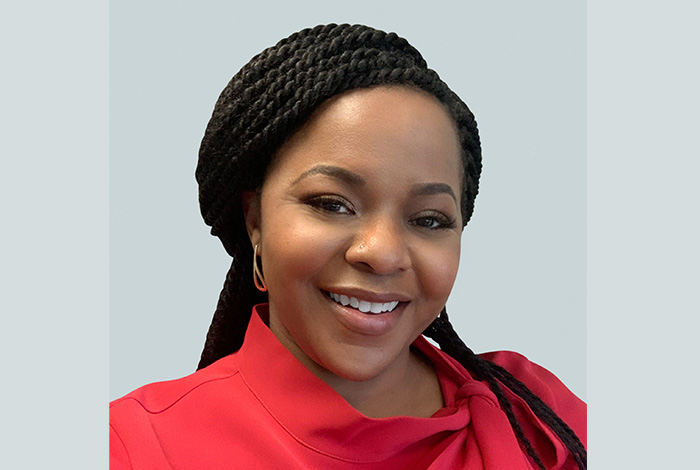Shara Wesley Shares Importance of Opening Doors for Next Generation
03/11/2022

During Women’s History Month, Centene is highlighting amazing women leaders making a difference at the company. Shara Wesley serves as Chief Health Equity and Diversity Officer, Managed Health Services in Indiana. Learn more in this Q&A with Shara about her background, role in advancing equity — in the workplace and for those we serve — and the importance of opening doors for the next generation of women.
Q. Tell us about your role as Chief Health Equity and Diversity Officer. What is the most interesting part of your job?
A. As a member of the Executive Leadership Team at Managed Healthcare Services (MHS) in Indiana, I have the unique opportunity to define, implement, and evaluate strategies to achieve equitable healthcare access and reduce health disparities. This includes leveraging internal and external partnerships to tackle deeply entrenched health inequities influenced by social determinants of health, such as food access, housing, social isolation, and transportation.
I am energized by MHS and Centene’s commitment to embed health equity into a matrix of strategies, including functional areas like external affairs, quality, population health, network development, and medical affairs — all to improve health outcomes and member experience. Finally, I oversee the activation of Centene’s Diversity, Equity and Inclusion (DEI) strategy in Indiana. This strategy emphasizes the value of diverse voices and prioritizes inclusivity and employee well-being as essential for success. To bring those values to life, MHS is committed to implementing programs and initiatives that actively cultivate diverse, equitable, and inclusive spaces.
The most interesting part of my job is being a part of history. COVID-19 heightened the nation’s collective understanding of health inequity and how historical and ongoing segregation, redlining — discriminatory practice that withholds services for residents of certain areas based on race or ethnicity — and underinvestment in neighborhoods has led to disparate access to the power and resources that make health an easier choice. It’s more important than ever to take the lessons of the past to fuel a healthier future for all.
Q. Why did you choose a career in managed care and public health?
A. During my time at Florida A&M University, I had the opportunity to launch one of the first American Cancer Society’s collegiate Relay for Life (RFL). This was more than an event. We used the RFL platform to also offer several programs that focused on cancer disparities that plague the Black community. It was through this work that I witnessed the power of implementing a neighborhood-based initiative that taught students, faculty, staff, and the surrounding community about the importance of cancer prevention screenings and how to navigate the complexities of cancer care. The spark was ignited. I immediately sought out a career that could pair two of my favorite things: science and service. Public health was the perfect fit.
Over the years, my career has taken me places professionally and personally that I could have never imagined. From serving within the Department of Health and Human Services to pandemic response within a non-profit healthcare system, the diversity of public health practice is vast. Now, as I start my career in managed care, I am excited to be a part of MHS and Centene’s Health Equity journey. I have already connected with so many phenomenal colleagues who have affirmed I am exactly where I need to be.
Q. What does Women’s History Month mean to you?
A. Women’s History Month immediately follows Black History Month and is a special time of year to celebrate the intersectionality of my lived experience as both a woman and an African American. I am inspired by the women who came before me and the doors that they kicked open for my generation. And now, I hope to be a “door-kicker” for girls like my daughter. I hope my courage and sacrifices propel them to also dream bigger than big. While I am always cheering for women and celebrating our place in society, it is important that we set aside this time to further emphasize what women have done, what we can do, and who we can be while doing it.
Q. Who is the person who influenced you most in your career?
A. My mother has a heart for serving others and living her faith out loud. She constantly creates opportunities for my family to participate alongside her. Some of my favorite childhood memories are volunteering with Meals on Wheels during the summer, washing gently used clothes to give children at a local shelter, serving holiday meals, and attending countless programs through our church. It was through these experiences that I also learned and saw what it meant to be a woman of God. Regardless of my professional role, I know that my mother’s example and faith ground me.
Q. What advice do you have for other aspiring leaders?
A. You don’t have to always have it figured out. Do not be afraid to deviate from your “plan.” Remember: “No one is you, and that, is your superpower.”